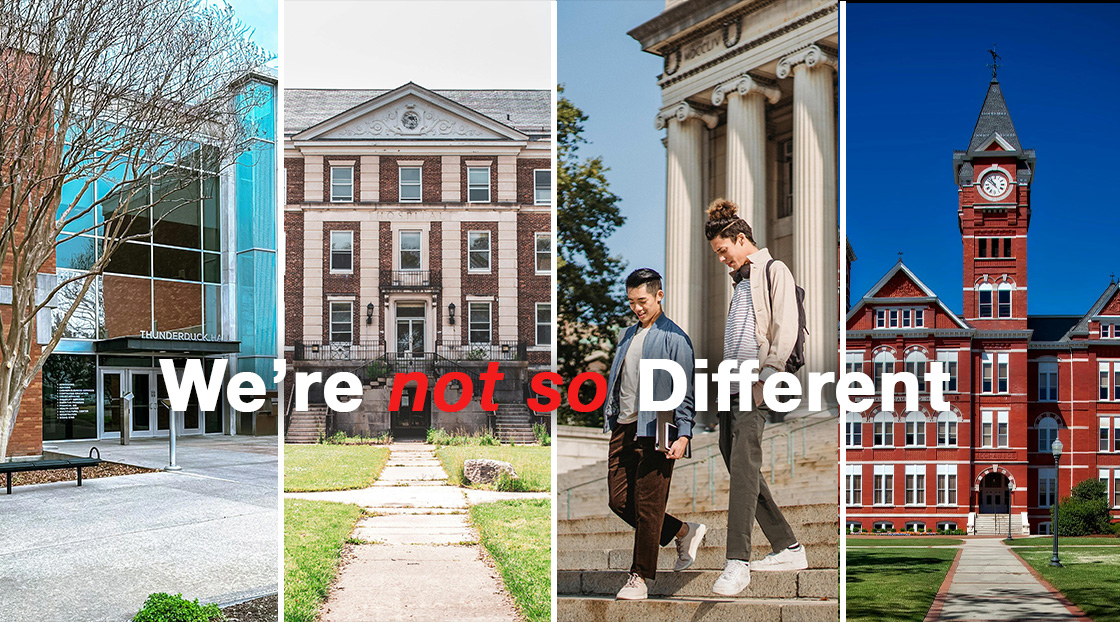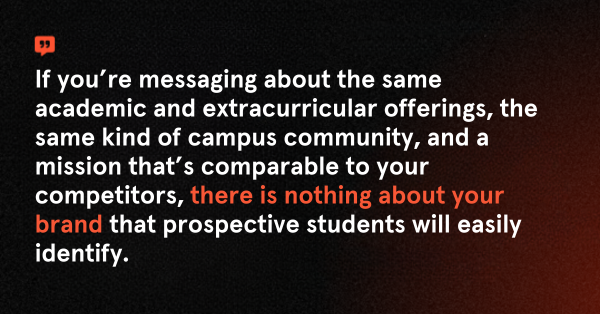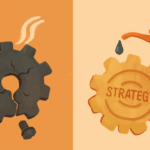“Well … we’re just different from other schools.”
Some of us have spoken a version of this phrase representing in-house teams. Others have heard it as strategic partners. I’ve been both a speaker and listener, representing a large private and a large public university, and now as a branding consultant — and it comes up during qualitative interviews in every project I’ve ever led.
But here’s the truth: Our colleges and universities are not that different.
In fact, your school is more similar to its peers and competitors than it is dissimilar. And that’s OK.
Deep breaths. We’re in this together.
In the name of being a good partner, I’ll offer you this: Being different isn’t, nor should it ever be, the hero of your college branding strategy. Nor is it the authentic message higher education needs in 2024 — when perception and trust in what we offer as an industry have waned, shifting our tectonic plates so far from the terra firma where we once stood.
We have focused on differentiation to our detriment.
Here’s an example. If your faculty conduct research, chances are they’re partnering with faculty at other similar institutions that are competitors. Yet, instead of our headlines reading “Faculty here collaborated with faculty there on groundbreaking research to do this great thing that is important to our brand and to the world,” we nearly always read something like, “Faculty here [insert full endowed chair title, college affiliation, and institute name] got a grant thiiiisss biggg to conduct research.”
From higher education working together to higher education isolating itself from … itself. From bridging divides to building walls (using AP style, to boot).







